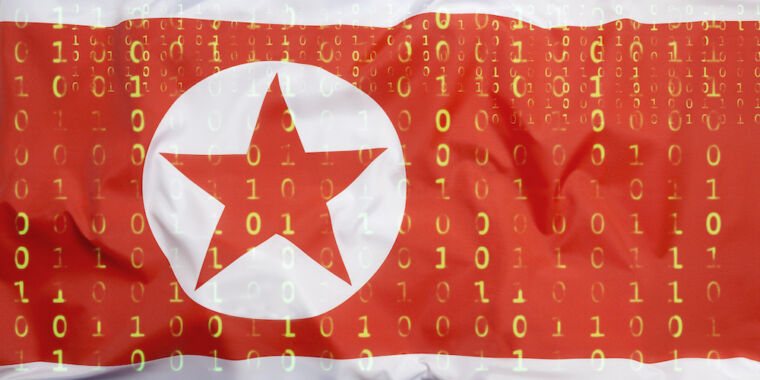Federal authorities have arrested a Nashville man on charges he hosted laptops at his residences in a scheme to deceive US companies into hiring foreign remote IT workers who funneled hundreds of thousands of dollars in income to fund North Korea’s weapons program.
The scheme, federal prosecutors said, worked by getting US companies to unwittingly hire North Korean nationals, who used the stolen identity of a Georgia man to appear to be a US citizen. Under sanctions issued by the federal government, US employers are strictly forbidden from hiring citizens of North Korea. Once the North Korean nationals were hired, the employers sent company-issued laptops to Matthew Isaac Knoot, 38, of Nashville, Tennessee, the prosecutors said in court papers filed in the US District Court of the Middle District of Tennessee. The court documents also said a foreign national with the alias Yang Di was involved in the conspiracy.
The prosecutors wrote:
As part of the conspiracy, Knoot received and hosted laptop computers issued by US companies to Andrew M. at Knoot’s Nashville, Tennessee residences for the purposes of deceiving the companies into believing that Andrew M. was located in the United States. Following receipt of the laptops and without authorization, Knoot logged on to the laptops, downloaded and installed remote desktop applications, and accessed without authorization the victim companies’ networks. The remote desktop applications enabled DI to work from locations outside the United states, in particular, China, while appearing to the victim companies that Andre M. was working from Knoot’s residences. In exchange, Knoot charged Di monthly fees for his services, including flat rates for each hosted laptop and a percentage of Di’s salary for IT work, enriching himself off the scheme.
The arrest comes two weeks after security-training company KnowBe4 said it unknowingly hired a North Korean national using a fake identity to appear as someone eligible to fill a position for a software engineer for an internal IT AI team. KnowBe4’s security team soon became suspicious of the new hire after detecting “anomalous activity,” including manipulating session history files, transferring potentially harmful files, and executing unauthorized software.
The North Korean national was hired even after KnowBe4 conducted background checks, verified references, and conducted four video interviews while he was an applicant. The fake applicant was able to stymie those checks by using a stolen identity and a photo that was altered with AI tools to create a fake profile picture and mimic the face during video conference calls.
In May federal prosecutors charged an Arizona woman for allegedly raising $6.8 million in a similar scheme to fund the weapons program. The defendant in that case, Christina Marie Chapman, 49, of Litchfield Park, Arizona, and co-conspirators compromised the identities of more than 60 people living in the US and used their personal information to get North Koreans IT jobs across more than 300 US companies.
The FBI and Departments of State and Treasury issued a May 2022 advisory alerting the international community, private sector, and public of a campaign underway to land North Korean nationals IT jobs in violation of many countries’ laws. US and South Korean officials issued updated guidance in October 2023 and again in May 2024. The advisories include signs that may indicate North Korea IT worker fraud and the use of US-based laptop farms.
The North Korean IT workers using Knoot’s laptop farm generated revenue of more than $250,000 each between July 2022 and August 2023. Much of the funds were then funneled to North Korea’s weapons program, which includes weapons of mass destruction, prosecutors said.
Knoot faces charges, including wire fraud, intentional damage to protected computers, aggravated identity theft, and conspiracy to cause the unlawful employment of aliens. If found guilty, he faces a maximum of 20 years in prison.




















Discussion about this post